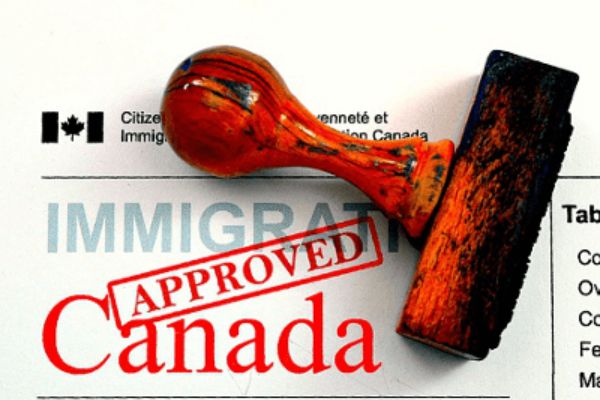Canada is a well-liked travel and educational destination because of its stunning scenery, varied culture, and excellent educational system. It is possible to convert a visitor visa into a study permit for individuals who enter Canada on a visitor visa and later decide they want to study there. This guide will take you through the prerequisites, actions, and advice you need to make this shift successfully.
How to Convert Visitor Visa To Study Permit in Canada
Canada’s prestigious educational institutions and wide range of cultural experiences present countless options for students from throughout the world. You may be wondering how to convert from visitor to student status if you are in Canada on a tourist visa and decide you would like to continue your education here. This post offers a thorough how-to guide for changing a visitor visa to a study permit in Canada so you may be prepared and make wise choices.
Visitor Visa vs. Study Permit
A visitor visa allows you to enter Canada for tourism or visiting family and friends, typically for a period of six months. On the other hand, a study permit is a document issued by Immigration, Refugees and Citizenship Canada (IRCC) that allows foreign nationals to study at designated learning institutions (DLIs) in Canada.
Key Differences
Purpose: Visitor visas are for short-term visits, while study permits are for educational purposes.
Duration: Visitor visas are usually valid for up to six months, whereas study permits last for the duration of your study program.
Work Eligibility: Study permits often allow students to work part-time during their studies, while visitor visas do not.
Eligibility Requirements for Converting Visitor Visa to Study Permit
Before you can convert your visitor visa to a study permit, you must meet specific eligibility criteria. These include:
Acceptance Letter: Obtain an acceptance letter from a designated learning institution (DLI) in Canada.
Proof of Financial Support: Show that you have enough money to pay for tuition fees, living expenses for yourself and any family members who come with you to Canada, and return transportation.
Health and Security Requirements: Meet health and character requirements, including a possible medical examination and police certificate.
Intent to Leave Canada: Demonstrate that you will leave Canada at the end of your authorized stay.
Step-by-Step Guide to Converting Your Visitor Visa to a Study Permit
1. Research and Choose a Program
Start by researching educational programs and institutions in Canada. Ensure that the school you choose is a designated learning institution (DLI). Consider factors such as program duration, tuition fees, and location.
2. Apply to the Designated Learning Institution
Once you have chosen a program, apply to the institution. Each school has its application process and deadlines. Ensure you meet all requirements and submit the necessary documents, such as transcripts, proof of language proficiency, and a statement of purpose.
3. Receive an Acceptance Letter
If your application is successful, you will receive an acceptance letter from the institution. This letter is a crucial document required for your study permit application.
4. Prepare Financial Documents
Gather proof of financial support, such as bank statements, proof of scholarship or loan, or a letter from a financial sponsor. You need to show that you can cover your tuition fees and living expenses.
5. Apply for the Study Permit
You can apply for a study permit online or by paper through the IRCC. Submit the following documents:
- Completed application form
- Acceptance letter from a DLI
- Proof of financial support
- Passport and photographs
- Any additional documents requested by the IRCC
Common Challenges and How to Overcome Them
1. Financial Proof
One of the main hurdles is proving sufficient financial resources. Ensure you have detailed and credible financial documents. Consider obtaining a scholarship or having a financial guarantor.
2. Application Timing
Timing is crucial. Apply for the study permit well in advance, as processing times can vary. Keep track of deadlines and ensure all documents are ready.
3. Meeting Health and Character Requirements
Medical exams and police certificates can delay the process. Schedule these appointments early and gather the necessary documentation to avoid delays.
Benefits of Converting a Visitor Visa to a Study Permit
Access to Quality Education
Canada is home to some of the world’s top universities and colleges, offering a wide range of programs and high-quality education.
Work Opportunities
With a study permit, you may be eligible to work part-time during your studies and full-time during scheduled breaks. This provides valuable work experience and helps cover living expenses.
Pathway to Permanent Residency
Studying in Canada can be a stepping stone to permanent residency. Programs like the Post-Graduation Work Permit (PGWP) and Canadian Experience Class (CEC) offer pathways to stay in Canada after graduation.
Tips for a Successful Transition
Stay Informed
Keep yourself updated with the latest information and guidelines from IRCC. Regulations and policies can change, and staying informed will help you navigate the process smoothly.
Seek Professional Help
Consider consulting with an immigration consultant or lawyer who specializes in Canadian immigration. They can provide personalized guidance and help you avoid common pitfalls.
Maintain Status
Ensure that you maintain legal status in Canada throughout the process. Do not overstay your visitor visa, and apply for a study permit before your current status expires.
Conclusion
It takes a few steps and requirements to convert a visitor visa to a study permit in Canada, but it is possible with careful planning and preparation. You may easily traverse the process and start your rewarding educational experience in Canada by adhering to these detailed instructions. Throughout the process, don’t forget to keep yourself informed, get expert help if necessary, and preserve your legal standing. International students can find great opportunities in Canada, and you can maximize your academic experience by following the correct procedures.







